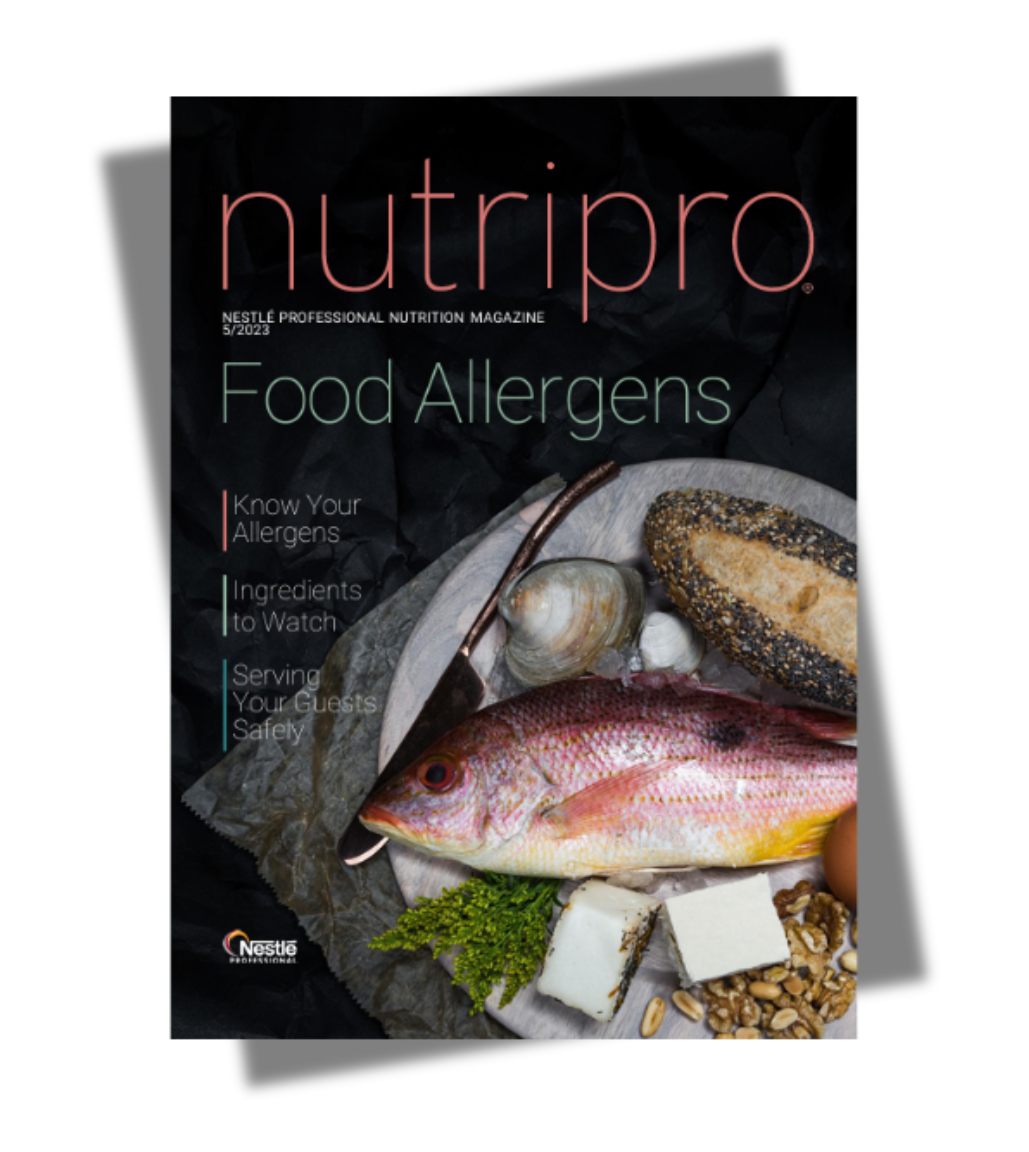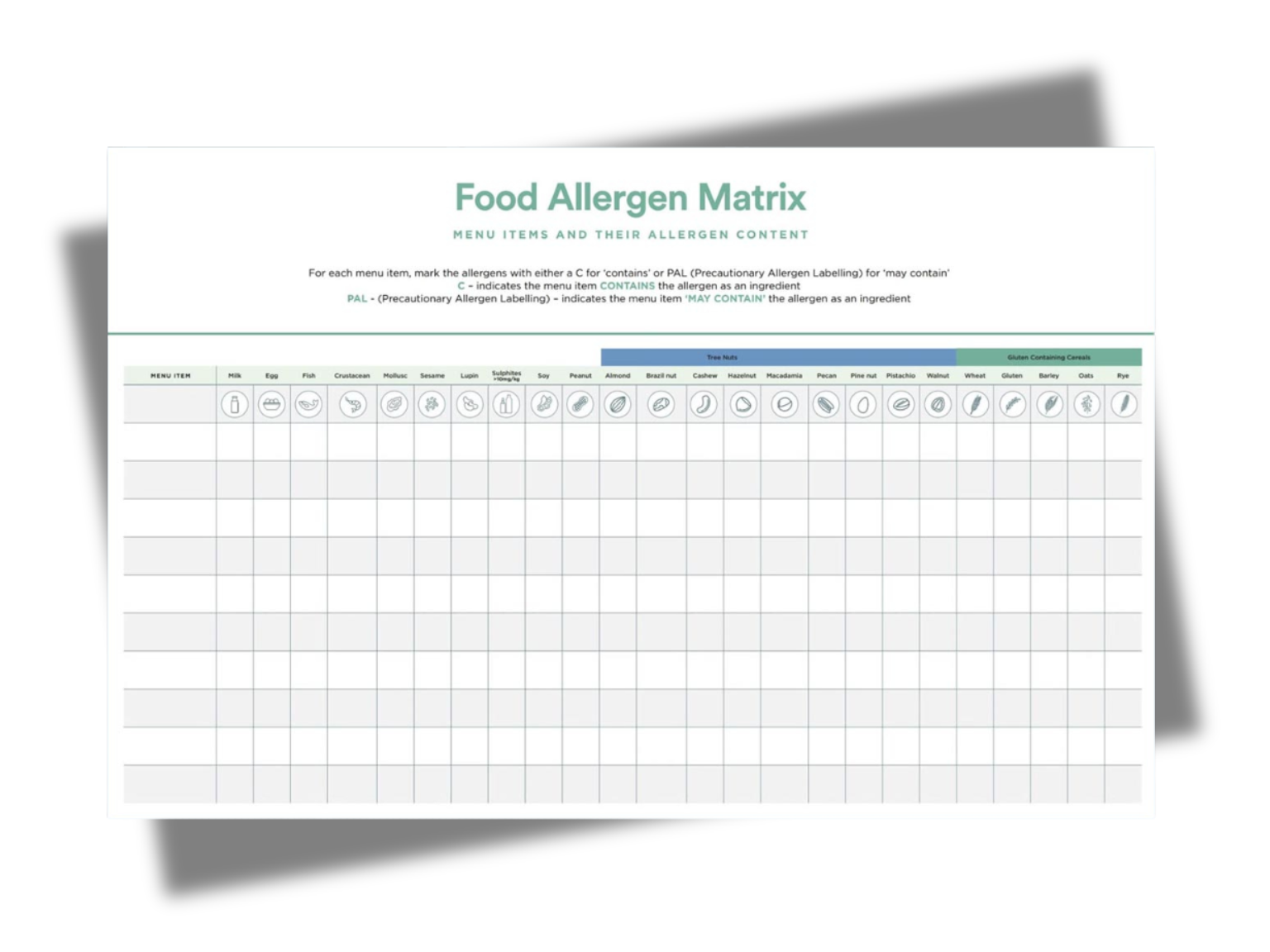
- Nutrition
- Allergen Resources
5 Allergen Management Tips for Foodservice Businesses
Protecting your customers from food allergic reactions begins in the kitchen. By taking steps to prevent exposure and cross-contact during food preparation, you can help keep your customers safer. Here are five tips to develop your own allergen management plan for your business.
In today's diverse culinary landscape, effective allergen management is crucial for foodservice businesses. Protecting your customers from food allergic reactions begins in the kitchen. By taking steps to prevent exposure and cross-contact during food preparation, you can help keep your customers safer. In this article, discover five tips to help you develop your own allergen management plan for your business.
1. Understand your Ingredients
Have a clear understanding of the ingredients used in your kitchen and which ones contain common allergens. Ask your suppliers to share product information forms. Allergens must be declared on food labels in accordance with the Food Standards Code. Check labels carefully and recheck each new pack. If a label says, “May contain …”, the food is unsuitable for an allergen-free meal due to the risk of possible contamination in amounts that may be significant enough to trigger an allergic reaction in your diner.
2. Use Standard Recipes
Use standard recipes so that your food is prepared consistently from day to day and chef to chef. Review your recipes frequently, keeping an updated food allergen matrix that allows you to record which ones contain allergens and what those allergens are. The allergen matrix should be easily accessible to staff and management. Identify which recipes can be adapted with simple substitutions, and which are prohibited for people with specific food allergies. This will help your kitchen address each customer’s needs, while reassuring guests that you have their best interests at hand.
3. Manage your Workspace
Anyone preparing food should understand the importance of following food allergy protocols and receive refresher training annually. Make sure your staff knows that food allergies can be life-threatening, and use the tips on the opposite page to reduce the risk of cross-contact.
4. Back of House
5. Front of House
In Australia and New Zealand, food businesses are required to be able to provide information about the presence of allergens in the food they sell. An up-to-date food allergen matrix can help staff in achieving this.
Ensure front-of-house staff can answer guests’ questions about food allergies and communicate their needs to the kitchen. Establishing guidelines can help everyone communicate when a guest has allergies.
SERVER:
• Before seating guests, ask if anyone has a food allergy. If so, avoid seating them near the kitchen door where airborne allergens may affect them.
• Ask if anyone at the table has food allergies. If the answer is yes, write down all allergens!
• Ensure the allergen is communicated to the kitchen in writing or entered into the ordering system.
• Inform the manager on duty about the allergen request, including the guest's table and order.
CHEF:
• Inform the server if the menu item can be prepared without the allergen, and indicate any adaptations required to the dish.
• Communicate clearly with your team. Acknowledge the request, and repeat it back to the server. Ensure all kitchen stations concerned verbally acknowledge the allergen request.
• When the dish is ready, isolate it from others going to the table, verbally communicating the sensitive dish directly to the server or manager who will deliver it to the guest.
SERVER OR MANAGER:
• Bring the dish to the table, mentioning the allergen again to ensure no mix-ups.
Food Allergens: a guide for food service
Download the Food Allergens NutriPro resource that provides a comprehensive guide to understanding food allergens and developing an allergen management plan for food service.
Food Allergen Matrix
Foodservice businesses must keep accurate and up-to-date information about allergens on their menus and any food or beverage they sell, which should be available on request to any customer. A food allergen matrix is a summary table of all allergens in a recipe or food menu item that can help staff quickly and easily identify all declared allergens. Download this handy Food Allergen Matrix template you can use for your business now

